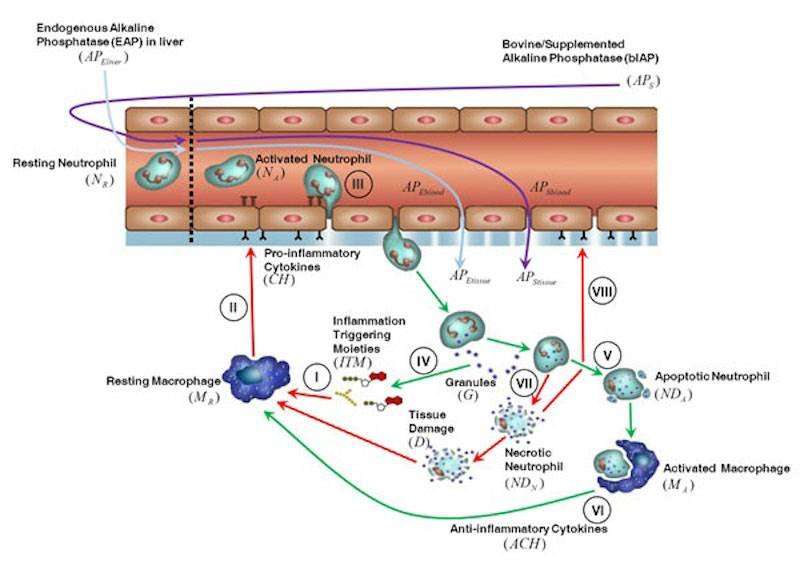Computational model clarifies immune response during cardiac surgery

A research team led by Peter Sloot, professor of Complex Adaptive Systems at the University of Amsterdam, has managed to pinpoint the mechanisms behind the immune response triggered in patients undergoing open heart surgery. The team's research reveals that by administering supplementary enzymes, so-called alkaline phosphates, to patients undergoing cardiac surgery, the latter can regain control over their own immune response. This in turn results in a surprisingly shorter recovery time and a considerably higher survival rate. The team's results were recently published in the leading open-access journal Frontiers in Immunology.
Since the origin of life about 3.8 billion years ago, various life forms have sought ways to protect themselves at a cellular level against invading pathogens. In those earliest life forms and in humans today, attacks by bacteria, fungi and viruses are repelled by an innate immune system. Over the course of millions of years, the co-evolution of the immune system and pathogens has resulted in a highly complex, extremely reactive and efficient immune system. Although this has enabled the survival of life, there are instances when a reactive immune response can have detrimental consequences. A notorious example is during surgery, when the immune system goes into overdrive by delivering an acute inflammatory response. A specific group of enzymes, alkaline phosphates, play a surprising role in this phenomenon – besides detoxifying the body, these enzymes are responsible for ensuring the barriers in our body, such as the gut and blood-brain barrier, continue to function normally. Whenever detoxification fails or the barrier functions are lost, complications arise in the form of an acute immune response with possibly disastrous consequences. Sloot and his team have unravelled this process with the help of a computational model and clinical research.
Better for the patient and for the healthcare sector
"The computational model allows us to predict both before and during surgery how the patient will react to the attack on his or her immune system," says co-author Ruud Brands, molecular cell biologist at Utrecht University and president of Alloksys Life Sciences Ltd. "The attending cardiothoracic surgeon can then take proactive measures to prevent the patient's condition from deteriorating, which can also have negative long-term implications. Not only is this better for the patient, but in the long run also contributes to cost savings in healthcare."
"It was a long and arduous road," says Sloot. "The immune system is a truly complex system, one with an infinite number of interactions and feedback mechanisms. It often exhibits unpredictable behaviour at the edge of order and chaos. This new computational model is therefore not merely an algorithm you can unleash on a mountain of data. Quite the opposite. It is an exceptionally thorough first attempt at genuinely gaining a deeper understanding of the underlying processes. It is thanks to the efforts and determination of the entire team of computational scientists, biologists and mathematicians that we've been able gain this vital insight."
More information: Alva Presbitero et al. Supplemented Alkaline Phosphatase Supports the Immune Response in Patients Undergoing Cardiac Surgery: Clinical and Computational Evidence, Frontiers in Immunology (2018). DOI: 10.3389/fimmu.2018.02342















